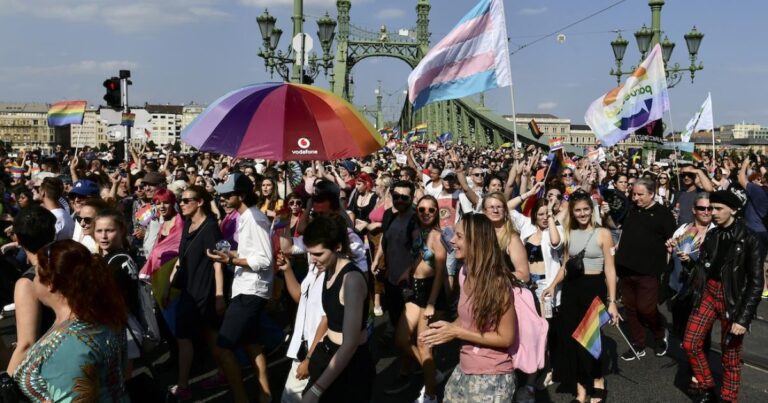Hungarian lesbian activists are set to hold their second DykeMarch on October 1, the final day of the EuroCentralAsian Lesbian* Community (EL*C) Conference in Budapest. This year’s conference, “Lesbian Resistance,” will open two weeks after Serbia initially banned EuroPride 2022, the latest in a two-year spate of attacks on Pride marches and other queer events in Bulgaria, Georgia, Romania, Serbia, Turkey, and Ukraine.
The EL*C conference and DykeMarch come amid ongoing government harassment of lesbian activism in Hungary. In February, an appeals court ruled against Labrisz Lesbian Association, finding that an article in a pro-government newspaper likening lesbian activists to pedophiles did not injure their reputation. This reversed a lower court decision, which deemed the article to be unfounded and offensive.
In June 2021, a Hungarian law criminalized showing “any content portraying or promoting sex reassignment or homosexuality” to children, falsely conflating LGBT rights with pedophilia. In August 2021, a government decree restricted customer access to the children’s book “A Fairytale for Everyone”, published by Labrisz Lesbian Association in 2020, under a new requirement that children’s books seen to “promote homosexuality” be sold only in “closed wrapping.” The Labrisz book retells traditional fairytales with queer, feminist characters.
“Having the conference in Budapest means a lot to us,” said Dorottya Redai, an activist with Labrisz. “Labrisz has been fighting against the political oppression of sexual minority women since 1999. Under the current government, we work harder than ever. We hope the Conference will signal to the government that lesbian resistance is powerful and won’t be silenced.”
The EL*C conference and DykeMarch take an intersectional approach, demanding rights for migrants, refugees, Roma communities, and other minority groups. As such, organizers could be at risk vis-a-vis Hungary’s sweeping criminalization in 2018 of migrant and refugee rights defenders. That law, condemned by several United Nations Special Rapporteurs and held by the Court of Justice of the European Union to violate EU law, remains in effect.
Given these wide-ranging attacks on queer, feminist, migrant, and minority rights advocacy, Hungarian authorities should ensure that the rights to freedom of assembly, association, and expression are protected during the EL*C conference and DykeMarch, and repeal laws that criminalize the work of activists and human rights defenders.



